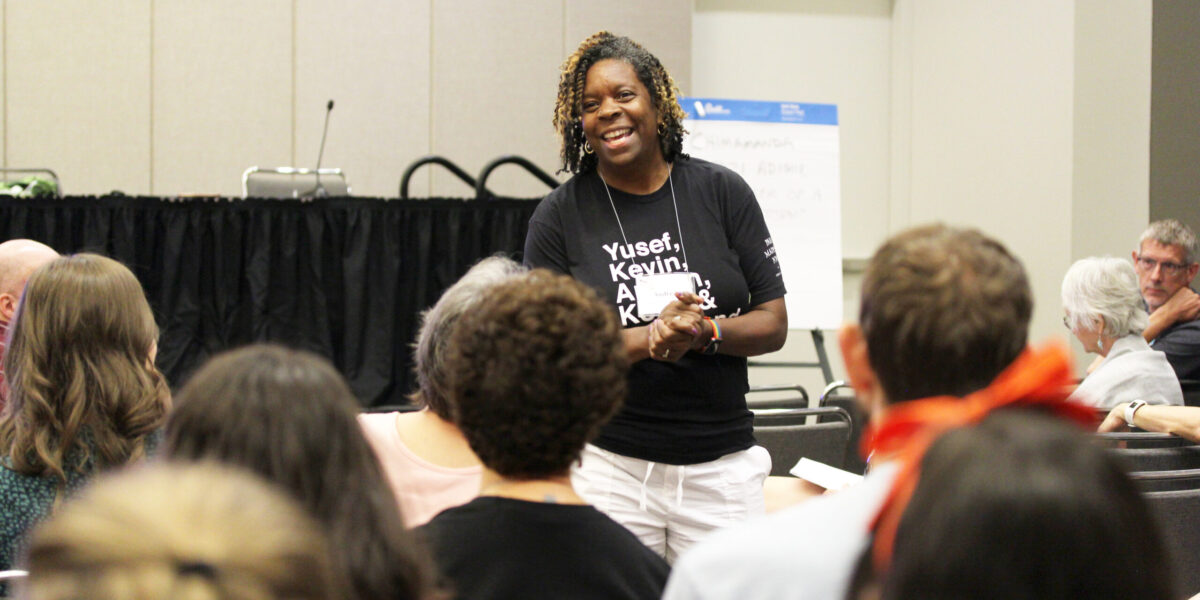KANSAS CITY (Mennonite Mission Network) – Andrea Sawyer-Kirksey, executive director of DOOR, led the seminar ‘Cultural Humility’ on Wednesday, July 3, 2019, as part of the Mennonite Church USA convention in Kansas City. DOOR is a faith-based network in cities across the US that provides opportunities for learning, service and leadership for youth and young adults. DOOR is a partnership program of Mennonite Mission Network.
Eschewing the podium at the front of the room, Sawyer-Kirksey walked amongst the rows of workshop attendees, guiding the group through stories of her life and work in Chicago, and unpacking the concept and practice of cultural humility.
“In an increasingly multicultural world, we no longer have the opportunity to avoid each other,” said Sawyer-Kirksey. “We really have to engage in knowing one another…and realize that we have to get this information of what we know about one another from each other.”
To engage in knowing one another takes compromise, patience, and a willingness to make mistakes and reveal ingrained biases.
“My mom used to say, “your slip is showing,”” recalled Sawyer-Kirksey. “That thing you were trying to hide, it slipped down so people can see it. I can see your bias.”
The willingness to be open and honest is a key component to practicing cultural humility.
“When we don’t recognize the power we have, we can do real damage,” she cautioned the group.
Cultural humility, she explained, is about mutually beneficial relationships between people, and it shouldn’t be the responsibility of the person of color to educate the other.
“[That] is not friendship,” she explained. “It’s just another space for white people to use the lived experience of people of color for their teaching and education.”
Instead, Sawyer-Kirksey suggested, cultural humility requires white people to deal with their own racism, as well as listen and reflect.
“I want the people of color to feel comfortable and validated in my workshop,” she said. “And for the white people to leave feeling conflicted and uncomfortable. To feel like the spotlight has been put on them. I wanted to bring some content that placed the lived experiences of people of color at the forefront.”








